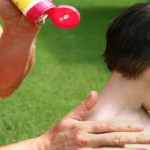Does Guttate Psoriasis Go Away On Its Own?
There are some types of psoriasis, and one of them is guttate psoriasis (the second most common type – it accounts about 10 percent of all cases). Typically, it starts in childhood and young adulthood (younger than 30). How about the prognosis of the problem – does it go away on its own?
Typically, it appears as small, red (water-drop-shaped) sores covered by a fine scale on the affected skin (commonly found on the trunk, legs, arms, ears, scalp, or even sometime on face). They can number in the hundreds.
These lesions are usually not as thick as plaque psoriasis (the most common type of the disease). In severe case, it can co-exist with another type of psoriasis.
 The following are the helpful checklists of the symptoms:
The following are the helpful checklists of the symptoms:
- Spots look like teardrops (pinkish-red) on the affected skin.
- Many times, these spots are wrapped with flaky-silver skin called scales – as noted before.
- And the lesions can be so itchy.
It is often reported as a skin problem that can occur suddenly. Many times, it develops after an infection particularly such as strep throat.
There is currently no clearly answer for the exact cause of the problem. Many doctors and experts believe that the immune system abnormality may play a key role behind the problem – though this factor may not work alone.
Other factors that may also have an effect in causing the problem is genetic trait and some external factors. In fact, many sufferers have a family history of the same problem. It seems that the disease may tend to run in families.
The good news, it doesn’t spread to others because it is not a contagious health condition. You cannot get it from accidentally touching someone who has guttate psoriasis.
In addition to a bacterial throat infection (strep throat), there are a variety of known triggers. The following are other conditions /factors that may trigger an attack of the problem:
- Other infections (either bacterial or viral infection) such as streptococcal infections, inflammation of the tonsils (tonsillitis), and upper respiratory infections.
- Getting injury to the skin, including sunburn, insect bites, and cuts.
- High stress.
- Binge drinking or too much consumption of alcohol. Furthermore – in general, alcohol may reduce the effectiveness of treatment options for psoriasis.
- The use of certain medicines may also have an effect. These include beta blockers and medicines for malaria (antimalarials).
As mentioned before, the wrong respond of body’s immune system may have a significant impact in causing guttate psoriasis.
The body’s immune system responds over-reactively and mistakes the healthy cells for harmful subjects. Eventually, this wrong respond causes the abnormal mechanism in the production of new skin cells.
The new skin cells production goes faster than normal and move to the skin’s surface too quickly which may occur in days rather than weeks.
On the other hand, the old /dead skin cells do not slough off quickly enough, causing scaly patches on the outermost layer of the skin. This cycle usually doesn’t stop without medical intervention.



